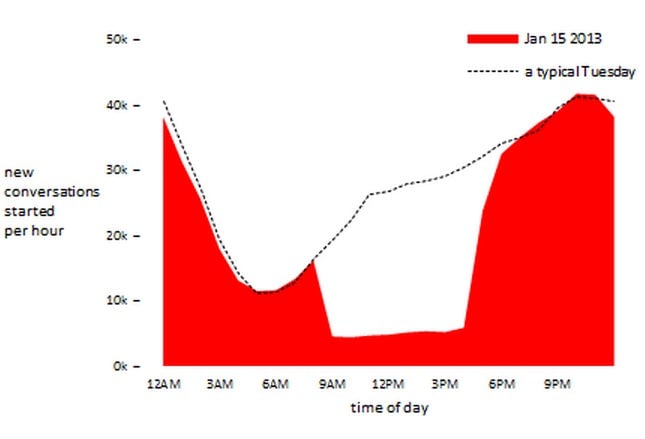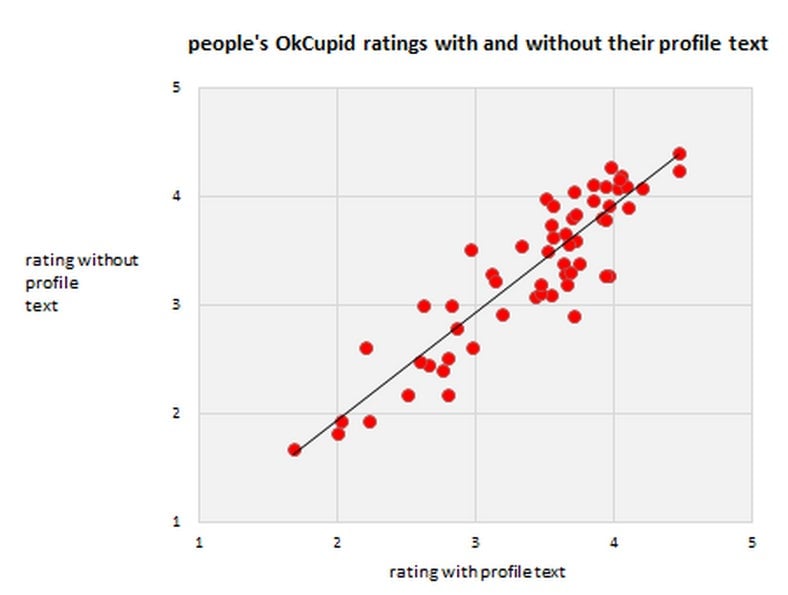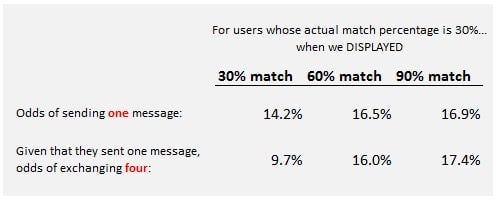OkCupid experimented on users and proved everyone just looks at the pictures
All that time you spent filling out questions for your OkCupid profile? Pointless. Barely anybody reads the answers.


All that time you spent filling out questions for your OkCupid profile? Pointless. Barely anybody reads the answers.
That’s what the dating website learned from observing its users. (It turns out Facebook isn’t the only social media site experimenting on its users.) OkCupid co-founder Christian Rudder has blogged about three experiments that the site has run, highlighting data that mostly show that people are extremely shallow and easily manipulated. For example, here’s what happened to traffic when OkCupid removed all the pictures from profiles for a day:

When people couldn’t see photos, they left the site in droves. Users who stuck around wound up responding to first messages faster, spent more time chatting than usual and exchanged contact information sooner. But when the photos returned, the blind dates generally stopped talking.
In another experiment, OkCupid found that ratings for attractiveness and personality correlate very closely. The site showed profiles to one group of users who saw pictures and text, while another group of users saw the profiles with photos only. Instead of being asked to submit separate ratings for personality and and attractiveness, the users involved in this experiment were asked for just one rating per profile examined. Here’s how the ratings compared for profiles with pictures only versus profiles including pictures and text:

So the words on your dating profile—or at least the ones on your OkCupid profile—matter very little compared with the photos you’ve posted of yourself on the beach or hugging a tiger. It also doesn’t appear to matter much whether OkCupid actually thinks you’re a match with someone. More influential is whether the site has told you that you are a match with someone.
In a third experiment, OkCupid indicated to some users that they were a 90% match with someone on the site, when in fact the “couple” measured only 30% on the site’s compatibility scale. (The site later informed people of the actual match percentage.) It turns out that if a dating website simply tells two people they’re compatible, the potential lovebirds are more likely to respond to messages from one another, and to keep the conversation going for at least four messages.

Rudder’s blog post about the findings, entitled “We Experiment on Human Beings!”, does note that when a couple actually is compatible, the likelihood of them holding a conversation goes up to 20%, suggesting there is something in the algorithm that works. But his takeaway from all these experiments? “OkCupid doesn’t really know what it’s doing. Neither does any other website.”